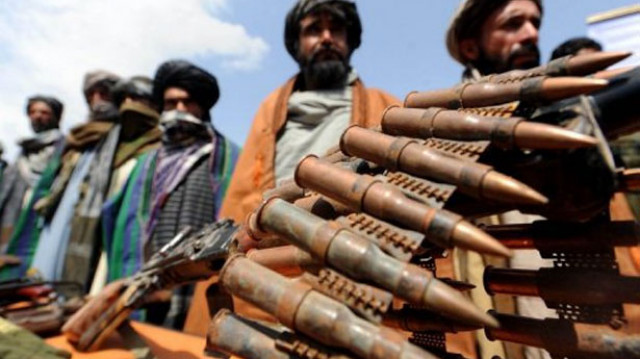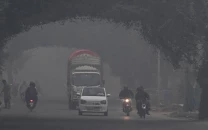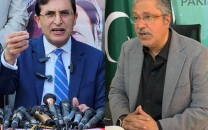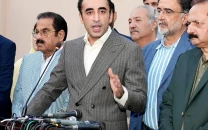Internal pressure mounts on Afghan govt for peace talks
Concerns abound that leaders with vested interest are not in favour of dialogue

PHOTO: AFP
The acting chief of the High Peace Council, Abdul Hakim Mujahid, has pressed the national unity government to begin efforts to start the next round of peace talks. Speaking at a conference held earlier this week in Kabul to discuss the fate of the talks, Mujahid said the time was ripe to enhance efforts.
Pak-Afghan relations — a steady decay
According to the acting head, leaders of Hizb-e-Islami Afghanistan and the Afghan Taliban also believe in peace. Mujahid said the new chief of the Afghan Taliban was a moderate leader and is willing to participate in negotiations. Mujahid also called for reorganising the High Peace Council which has been without a permanent chief since January.
Spate of insurgency
These developments occurred against the backdrop of international calls to end the deadlock in the peace process and mounting Taliban insurgency across Afghanistan. The Taliban have extended the war to the northern parts of the country and this recent spate has also raised concerns among Central Asian states as well as Russia.
Earlier this week, the Afghan government confirmed the fall of the Taliban in Darqand in Takhar province which borders Tajikistan. The brief takeover of Kunduz by the Taliban sparked a debate across Afghanistan over whether guerrilla warfare has been converted into a conventional war.
Pakistan has some influence on Taliban but no control over them: Aziz
Afghan defence analysts believe the Taliban have come out of villages and districts and have reached highways and provincial centres. Recently, the Taliban blocked the main highway connecting Kandahar with the capital for several days.
As per data compiled by the UN, the insurgency has spread to more parts of Afghanistan than at any point in time since 2001. These statistics indicate guerrilla warfare has spread to even those parts of the country where the Taliban did not have a stronghold in the past.
Where the onus lies
The Afghan government is widely believed to have played an instrumental role in derailing the Pakistan-brokered peace negotiations. As a result, the onus is now on those at the helms of affairs in Kabul to revive talks.
Taliban urge rescuers "not to hold back" in Afghan quake relief effort
The lacklustre approach shown by the government towards the peace process runs contrary to its erstwhile pledges and could be a source of further instability in the country. Kabul has yet to unveil a comprehensive strategy to reach out to the Taliban. Some leaders have even put forward a series of conditions for talks with Taliban, which could further hamper the process.
The first step towards ensuring peace could be to reorganise the peace council and appoint a new chief. The council should also be given powers and a clear mandate for talks with the Taliban and Hizb-e-Islami.
Question marks
The government’s lack of interest has raised concerns that leaders are not in favour of dialogue with the Taliban as they have vested interests.
Dozens dead in northeast Afghanistan
Kabir Ranjbar, who heads a union of Afghan legal experts, says if peace and stability are restored, powerful stakeholders in Afghanistan who have committed crimes must be taken to task. According to the expert, mayhem and disorder is in their best interest.
Meanwhile, senior political leaders have vehemently rejected the decision to ask Pakistan to take action against the Taliban at a time when its help has already been sought in the peace process. In a veiled reference to recent demands by Chief Executive Dr Abdullah Abdullah, Qazi Amin Waqad said Afghanistan should request Pakistan to use its influence to bring the Taliban to the negotiation table.
“Taliban are Afghans and should not be killed on Pakistan’s soil,” he told Shamshad TV earlier this week. “Since Pakistan has influenced the Taliban so far, it can also influence them to come to the negotiation table.”
Published in The Express Tribune, October 31st, 2015.


















COMMENTS
Comments are moderated and generally will be posted if they are on-topic and not abusive.
For more information, please see our Comments FAQ